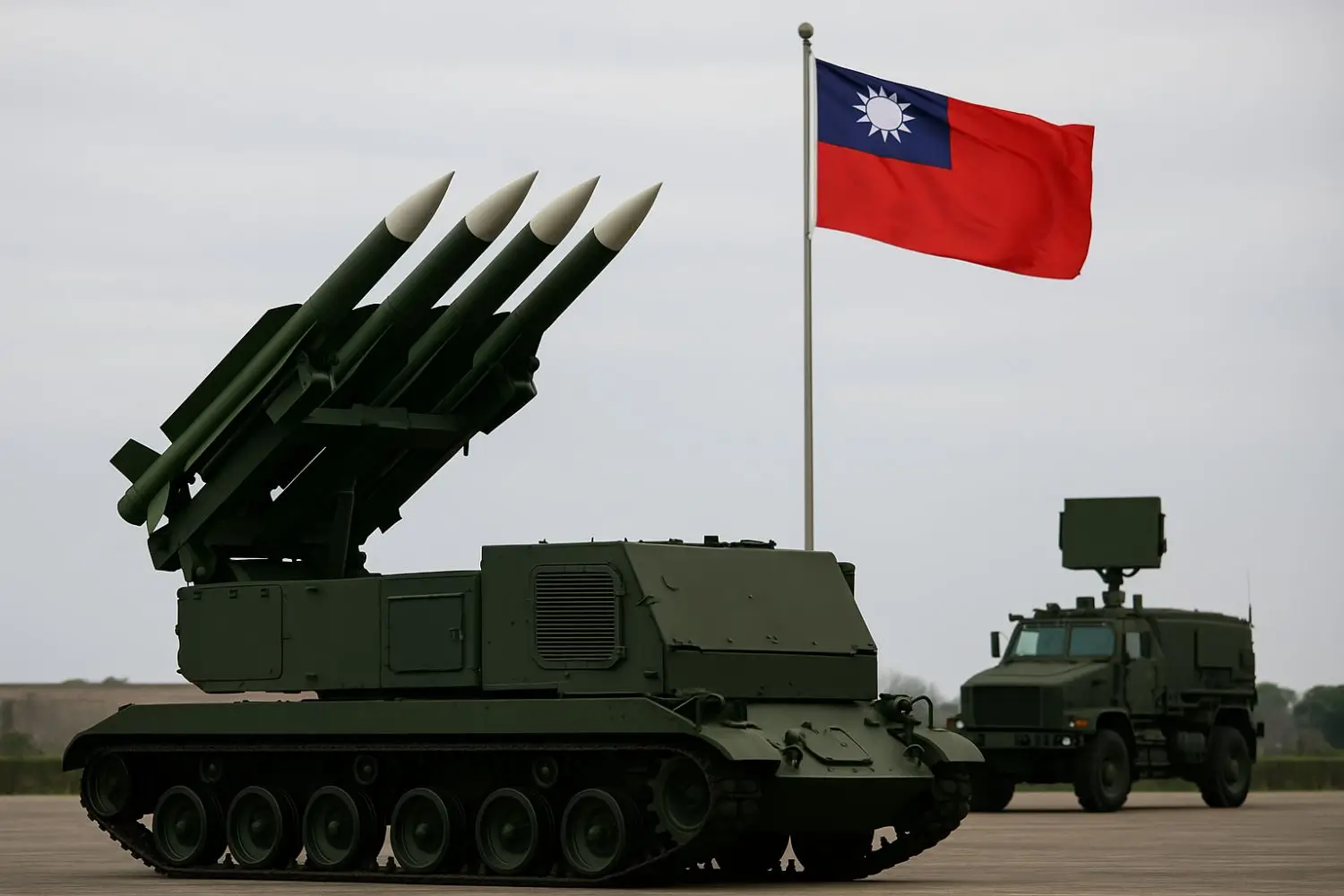Share
Homepage
News
Taiwan Announces Additional $40 Billion Defence Budget as Pressure from China Intensifies
Taiwan Announces Additional $40 Billion Defence Budget as Pressure from China Intensifies
26 tháng 11 2025
Taiwan unveils a $40 billion supplementary defence budget to boost military capabilities amid escalating pressure from China.

1. Taiwan Boosts Defence Spending Amid Escalating Cross-Strait Tensions
On November 26, Taiwan’s President Lai Ching-te announced a supplementary defence budget worth $40 billion (equivalent to T$1.25 trillion). The package aims to reinforce Taiwan’s determination to defend itself as pressures from China continue to rise.
Over the past five years, Beijing has sharply intensified military and political coercion, including large-scale drills, frequent aerial incursions, and maritime pressure, all aimed at asserting its territorial claims. Taiwan has consistently rejected China’s sovereignty assertions, stressing it is a self-governing democracy.
Meanwhile, the United States has repeatedly urged Taiwan to raise its defence spending—mirroring similar pressure Washington places on European allies. President Lai previously signaled a long-term ambition to increase defence expenditure to 5% of GDP by 2030, reflecting Taiwan’s commitment to a more modern and resilient military.
2. “No Compromise in the Face of Aggression”: A Firm Message from Taipei
Announcing the new spending package, President Lai emphasised that history has shown compromising with aggression only leads to subjugation.
“There is no room for compromise on national security,” Lai stated at the presidential office.
“National sovereignty and the core values of freedom and democracy are the very foundation of our nation.”
The supplementary budget will cover the period 2026–2033, prioritising key capabilities such as:
Long-range missile systems
Unmanned aerial vehicles (UAVs)
The new “T-Dome” air-defence system designed to strengthen multi-layered missile interception
Defence Minister Wellington Koo said these items are essential for enhancing Taiwan’s asymmetric defence posture—an approach Washington has long urged Taiwan to adopt.
3. Asymmetric Defence Strategy: “Small but Strong,” Built for Deterrence
Given the significant gap between Taiwan’s military capabilities and China’s rapidly expanding forces, Taipei is pursuing an asymmetric defence strategy designed to:
Increase military agility
Maximise precision strike capabilities
Inflict high costs on a superior adversary
Strengthen deterrence at a lower financial burden
For 2026 alone, Taiwan plans to allocate T$949.5 billion (about $30.3 billion) for defence—equivalent to 3.32% of GDP, marking the first time spending surpasses the 3% threshold since 2009.
The overarching goal is clear: build a defence posture strong enough to discourage military adventurism and reduce the likelihood of war.
4. Strong U.S. Support for Taiwan’s New Defence Spending Plan
Raymond Greene, the de facto U.S. ambassador to Taiwan, voiced strong support for the announcement, calling it “a major step forward” toward safeguarding peace and stability across the Taiwan Strait.
“The United States supports Taiwan’s rapid acquisition of critical asymmetric capabilities,” Greene wrote.
“Today’s announcement marks a significant move to strengthen deterrence.”
Under the Taiwan Relations Act, the United States is legally required to support Taiwan’s self-defence capabilities, even in the absence of formal diplomatic relations.
5. Key Hurdle Ahead: Taiwan’s Opposition-Controlled Parliament
Despite strong support from the presidency, Taiwan’s parliament—controlled by the opposition Kuomintang (KMT)—may pose challenges to the passage of the budget.
KMT chairwoman Cheng Li-wun has previously been skeptical about raising defence spending. Although she did not explicitly state that the party would block the proposal, she urged President Lai to avoid escalating tensions.
She reiterated the Taiwanese people’s desire for peace:
“The people of Taiwan love peace and firmly desire peace. We want to stay far away from the flames of war, we want to avoid war.”
As debates unfold, the budget’s fate will depend largely on how lawmakers balance domestic political concerns with national security imperatives.
6. Beijing Reacts Strongly: “Taiwan Is Following External Forces”
In Beijing, a spokesperson for China’s Taiwan Affairs Office, Peng Qingen, criticized the new spending plan, accusing Taiwan of allowing “external forces” to shape its decisions.
According to Beijing:
“They squander funds that could be used to improve people’s livelihoods and develop the economy on purchasing weapons and currying favour with external powers.
This will only plunge Taiwan into disaster.”
China has also clashed with Japan in recent days over comments by Japanese Prime Minister Sanae Takaichi, who suggested a hypothetical Chinese attack on Taiwan could trigger a broader regional response. Lai responded by saying:
“Constantly launching multifaceted threats and attacks against neighbouring countries at every turn is not the conduct expected of a responsible major power.”
The statement underscores the increasingly complex geopolitical landscape surrounding Taiwan.
7. Strategic Significance of the $40 Billion Budget Package
Taiwan’s decision carries substantial long-term implications:
• A firm declaration of Taiwan’s resolve to defend itself
The package sends a clear message to Beijing and the international community about Taiwan’s commitment to bolstering its defences.
• Strengthening the island’s deterrence posture
Enhanced military capabilities raise the cost of any potential aggression, making conflict less likely.
• Reinforcing U.S.–Taiwan security cooperation
The budget aligns with Washington’s strategic vision in the Indo-Pacific region.
• Broader impact on East Asian geopolitical stability
The budget increase occurs amid rising tensions:
U.S.–China strategic rivalry
China–Japan disputes
Domestic political divisions within Taiwan
Combined, these factors will shape the security environment in East Asia for years to come.
FAQs
1. Why does Taiwan need an additional $40 billion in defence spending?
Because China has significantly increased military pressure, prompting Taiwan to strengthen its defensive capabilities to safeguard national security.
2. What will the supplementary budget be used for?
It will fund missiles, drones, the new T-Dome air-defence system, and other asymmetric warfare capabilities.
3. Does the budget require parliamentary approval?
Yes. Taiwan’s parliament—currently dominated by the opposition KMT—must approve the spending plan, making its passage uncertain.
4. What role does the United States play?
The U.S. supports Taiwan’s defence efforts and is legally obliged to assist Taiwan in maintaining sufficient self-defence capabilities.
All information on our website is for general reference only, investors need to consider and take responsibility for all their investment actions. Info Finance is not responsible for any actions of investors.







